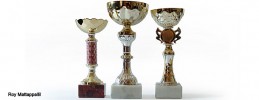
photo by Steve VanHorn
by Joanna Trollope
~
This speech was made at the awards ceremony for the Sunday Times EFG Private Bank Short Story Award held at Corpus Christi College, Oxford on March 30th 2012.
~
The short story, as a genre, is not easy. In fact, speaking personally, I would say that it was fiendishly difficult to get right. And what is right, for a short story? Well, the length, obviously – not more than five or six thousand words, the length of a single average chapter in a full length novel. Narrative is also essential to some degree to grab the reader’s attention but if it is only narrative, the sheer brevity won’t allow a story to develop enough to be effective. So the narrative has to be deeply significant too, almost metaphorical, suggesting to the reader that this brief thing that they have in their hands is a condensed version of something much bigger. It is, at its best, and we have six bests here this evening, just the start of a process of thinking and imagining for the reader, a trigger for all kinds of future thoughts and wonderings.
Which in turn leads to the relationship between a short story writer and a short story reader. And this is where the true value of the genre lies, to my mind. Because the short story has this instant ability to fire up the readers mind, the relationship between writer and reader is particularly intimate. Maybe the smallness of the thing helps here too, being so accessible. But reading a short story involves the reader quickly and intensely. It is like being grabbed by the lapels and spoken to close up and urgently. The short story humanizes literature like no other genre, and this is why we love it, and why we have missed it, and why we are so glad, and so grateful to all these enabling people, to have it back.
It has, too, a terrific pedigree. Maupassant, Chekhov, Saki, William Trevor, to name but a few. And now all of you. And indeed, the 500 people who submitted entries, and the 20 who made it onto the longlist. We judges were impressed. Really impressed. We agreed that everything on that longlist stood up and nothing on it was badly written. We were struck by the adventurousness of approach and the variety of styles and periods and subject matter. We were very taken by the emotional and philosophical qualities coming across as all the more powerful, actually, for being in this tightly contained form, and we especially wanted to commend the stories by Alison MacLeod, Will Cohu, Evgenia Citkowitz, Jackie Kay and Diana Athill.
So, it was, as you may imagine, painful to get the list down to six. Because this is such a human genre, we all felt very strongly, and inevitably, about different writers. But in the end, sheer excellence has to prevail, and all of you six came up trumps on that score.
I am going to mention each shortlisted story briefly, and strictly in alphabetical, not merit, order of the authors.
First, Kevin Barry’s ‘Beer Trip To Llandudno’. This is a beautifully achieved story on a very modern, pretty unappealing subject which manages to bring out, without any sentimentality whatever, the poignancy of people who can’t express themselves but still have complete validity. We were especially impressed by the tiny details and conversational fragments that make this story so much of now.
Second, Emma Donoghue’s ‘The Hunt’. So different, so horrifyingly good. It is very short, and historical, set in the American War of Independence. It is the story of a betrayal, though you don’t know it till the final masterly line, and is, indeed, a master class in how to tell a tiny, terrible story that leaves the reader not just gasping at the force of the narrative but also about how it reveals the darkness in us all.
Third, Linda Oatman High’s ‘Nickel Mines Hardware’. Again, we are in completely different country. This strong morality tale was inspired by a real Columbine like school killing in the Amish community of modern Pennsylvania. There is a quiet, almost biblical style here, but any simplicity of appearance only emphasises the huge questions the story asks, not just about right and wrong but also about the ever fascinating subject of self deception.
Fourth, is Jean Kwok’s ‘Where The Gods Fly’. We all just felt that this was a truly fine piece of writing. It’s a modern story again, but so different – the cultural clash between generations, a Chinese mother/daughter situation in the US, and a magnificent portrait of the terror of the new attempting to destroy the promise it holds for the young. The writing is so polished, and the story is so clearly told that we are left, albeit in another way, as unable to escape from an unwelcome human reality as we are in Emma Donoghue’s story.
Fifth is Tom Lee’s ‘The Current’. This is quite an achievement. It is the story of a very recognisable lostness – in this case a son and his dying but manically energised father – told with absolute precision. You have a whole family dynamic here, familiar to us all, revealed in a single story, every character credible, every inarticulateness eloquent. Even the disconnectedness so common in modern life is pin pointed without any apparent effort. We are drawn in to a situation we can do nothing about, but whose frustrations are all too credible.
And sixth, is Robert Minhinnick’s ‘El Aziz: Some Pages From His Notebook’. A brilliant story. An Iraqi immigrant, washed up working in a northern old peoples’ home, via southern Spain, quietly reflects, and remembers, and ponders, and describes his current life and snatches from his past ones. The voice of the narrator is as impressive as what emerges of his personality, and of the epic journeys and struggles that modern immigrants have to undertake. It’s a story but it’s so much more than that. As all the best short stories are.
And the best is what we had to struggle to decide upon. And it was a struggle, because what we had to choose from made such strong claims on all of us. But what finally decided the winner was not just that this is a story of consummate skill on the part of the writer, but also one of tremendous courage. I am delighted to announce that the winner of the EFG/Sunday Times short story award for 2012 is Kevin Barry and ‘Beer Trip to Llandudno’.
~
 Joanna Trollope has written numerous highly-acclaimed contemporary novels: The Choir, A Village Affair, A Passionate Man, The Rector’s Wife, The Men and the Girls, A Spanish Lover, The Best of Friends, Next of Kin, Other People’s Children, Marrying the Mistress, Girl from the South, Friday Nights, The Other Family, Daughters-in-Law and The Soldier’s Wife. Other People’s Children has been broadcast on BBC television as a major drama serial. Under the name of Caroline Harvey she writes romantic historical novels. She has also written a study of women in the British Empire, Britannia’s Daughters. Joanna Trollope was born in Gloucestershire and lives in London. She was appointed OBE in the 1996 Queen’s Birthday Honours List for services to literature.
Joanna Trollope has written numerous highly-acclaimed contemporary novels: The Choir, A Village Affair, A Passionate Man, The Rector’s Wife, The Men and the Girls, A Spanish Lover, The Best of Friends, Next of Kin, Other People’s Children, Marrying the Mistress, Girl from the South, Friday Nights, The Other Family, Daughters-in-Law and The Soldier’s Wife. Other People’s Children has been broadcast on BBC television as a major drama serial. Under the name of Caroline Harvey she writes romantic historical novels. She has also written a study of women in the British Empire, Britannia’s Daughters. Joanna Trollope was born in Gloucestershire and lives in London. She was appointed OBE in the 1996 Queen’s Birthday Honours List for services to literature.
THRESHOLDS would like to extend a warm thank you to Joanna Trollope for making this special contribution to The Forum, and also to Cathy Galvin, Founder of The Sunday Times EFG Short Story Award. We are grateful to you both for allowing us to publish this speech in full.


This was so chocka with gem-like pronouncements on the short story, I thought, hearing it on the night. So great to have it up on the interweb too as a printed resource. Thanks Thresholds!